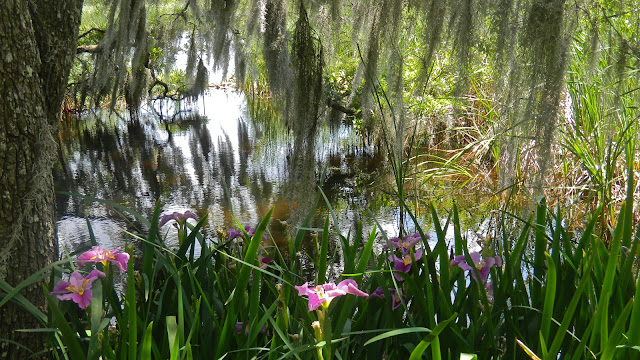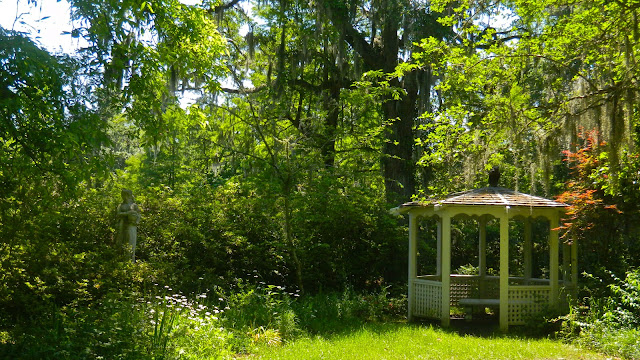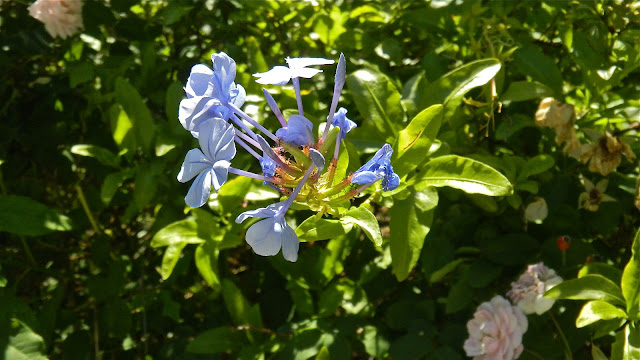 |
Magnolia blossom at Magnolia Plantation
Last Friday, May the 10th, Magnolia Plantation participated in National Public Gardens Day, offering free admission to visitors who printed out a coupon available on-line. I've never seen such a throng of people in Magnolia's gardens, but then I've never before visited during a major event. In times past when I've been there, it's been during the colder months when more camellias are in bloom.

Magnolia Plantation, located on the Ashley River in Charleston, South Carolina, is one of America's oldest gardens. It's reported to be the first home to azaleas in this country. The plantation was established in 1679. During the first half of the nineteenth century, John Grimké Drayton inherited the property and expanded its gardens, enhancing the native landscape.
|
|
|
The deep red flower of a Lord Ferndale ancient camellia japonica
Magnolia Plantation and Gardens includes a small formal garden, a biblical garden, a camellia garden, an oak avenue, a wildlife observation tower, a horticultural maze, and a petting zoo. By paying additional fees, visitors can tour the house, take a boat ride, and visit the Audubon Swamp Garden.
|
 |
The Red Bridge
What I like best about Magnolia Plantation is the scenic beauty of bridges over small lakes inhabited by native alligators. I enjoy hearing peacocks call and I love seeing the colors, forms, and textures of camellias and azaleas and a variety of other flowering plants.
|
 |
| Irises and Spanish moss |
 |
| Foxgloves |
 |
Azalea blossoms reach toward the sky
|
Not long after my arrival at Magnolia Plantation on Friday, I located a secluded gazebo in the Romantic Garden. Seated on a bench inside it, sheltered from the hot sun, I gazed out at patches of shasta daisies, their white faces stretching skyward. A few azaleas continued to bloom and one, within reach, had huge blossoms, colored a deep pink. A Japanese maple stood next to the gazebo and a magnolia behind it. Along the path in front of the structure, Spanish moss dangled from branches. Nearby, a pair of cardinals tweeted from a dogwood tree.
 |
| One of several bridges |
After enjoying the view from the gazebo, I strolled through the gardens and wandered down the path between the historic rice fields and the Ashley River, remembering the time, well over twenty years ago, when I pushed my niece's stroller down these same paths.
Was that before or after Hurricane Hugo devastated the area? Probably before. But I recall returning after and how thinned out this and other area gardens appeared during the months and first years that followed the storm.
Now the growth is lush again. I'm thankful for that and for the offer of free admission that provided the incentive to travel once again to a place I visit far too seldom.
 |
| A trio of calla lilies |
 |
| Visitors stroll through the gardens |
 |
| Gazebo in the Romantic Garden |
For more information about the gardens at Magnolia Plantation, visit:

















